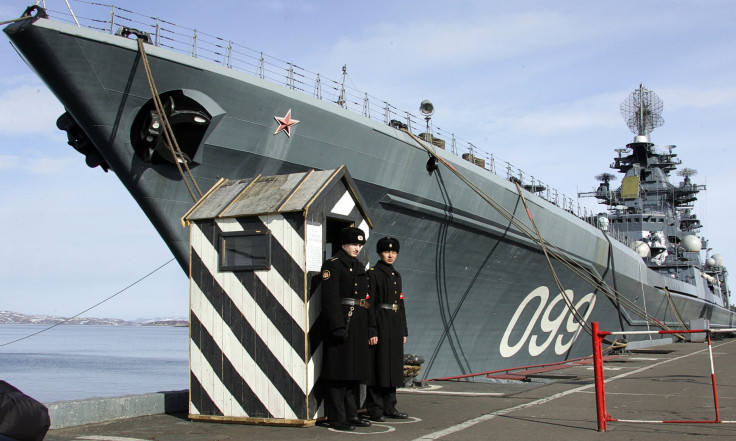Russia To Spend $93 Million On Arctic Monitoring System

Russia increased its attempts to stake a claim over a large portion of the Arctic Ocean when it announced plans to set up a $93 million monitoring system in the region by 2025, the security company RTI said Friday. The announcement came after Moscow submitted a bid to the United Nations on Monday to incorporate 460,000 square miles of the Arctic into its territory, causing concerns by nonprofits and government officials that Russia was becoming too aggressive in the Arctic.
The security system, which would include both civilian and military aspects, was set to include surface radars, underwater lighting, an orbit space system, and remotely controlled drones. Russian President Vladimir Putin has been steadily increasing the nation's presence in Arctic waters and said the decision to do so was for both national security reasons and for access to natural resources.
Putin said NATO's increasing presence near Russia's borders had caused Russia to want to increase its military presence along its own borders with northern European nations. The Arctic is also a very mineral-rich zone that could be a source of oil.

Temperatures in the Arctic have been rising in recent years because of climate change, and its waters are no longer frozen year-round, making it much more accessible for military ships and drilling crews. The proposed security system was announced before the U.N. had decided whether Russia's claim to this vast expanse of territory was valid. The area also would include the North Pole, which has long been considered neutral territory. Proximity to northern Europe and the U.S. state of Alaska have caused government officials and nonprofits to voice their concern.
"The melting of the Arctic ice is uncovering a new and vulnerable sea," said Vladimir Chuprov, an activist in the region for Greenpeace, an environmental group. "Countries like Russia and Norway want to turn it into the next Saudi Arabia. Unless we act together, this region could be dotted with oil wells and fishing fleets within our lifetime."
© Copyright IBTimes 2024. All rights reserved.






















